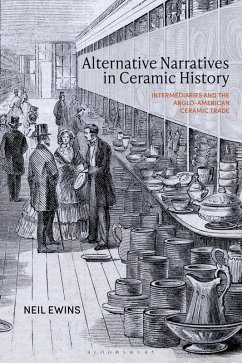Introducing new insights into the history of ceramic design and consumption, Neil Ewins departs from the focus on manufacturers and producers and presents a third perspective that puts the multifaceted lives of the merchants, importers and dealers at the centre. Challenging the notion that intermediaries involved in the Anglo-American ceramic trade from the late 18th into the 19th century were simply motivated by maximizing profits and widespread market demands, Ewin's alternative approach demonstrates the value of taking their culture, identity and conscience into account. The geographic gap between the British manufacturer and the American consumer meant that those involved in mercantile activities assumed a highly significant role. Ewins analyses a range of sources including city directories, advertisements, newspapers and family trees to identify those involved in the ceramic trade, supplemented by archival material relating to the Wainwright and Ovington families. Illustrated with examples of ceramics and engravings, chapters explore how the intermediaries commissioned and marketed ceramics for different reasons, influenced by their political, social, religious and moral views. Ewins investigates how culture and a strong sense of identity, the abolition movement, kinship and family ties, religious beliefs and community, and the interracial experience all played a part in the manufacture, distribution and consumption of ceramics in the US market. This volume demonstrates how the role of intermediaries deserves a place in the history of the Anglo-American ceramic trade; beyond design and consumption being production-led or market-led, it reveals that it could also be conscience-led and suggests the picture is far more complex than once understood.
Bitte wählen Sie Ihr Anliegen aus.
Rechnungen
Retourenschein anfordern
Bestellstatus
Storno








